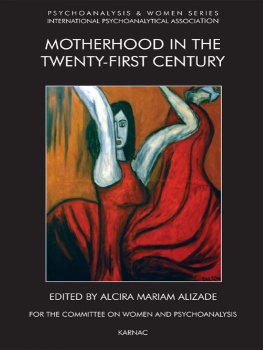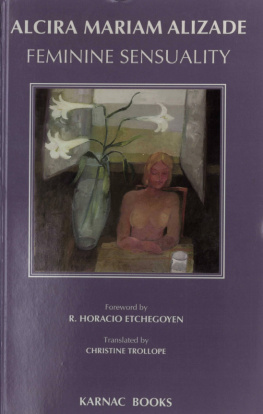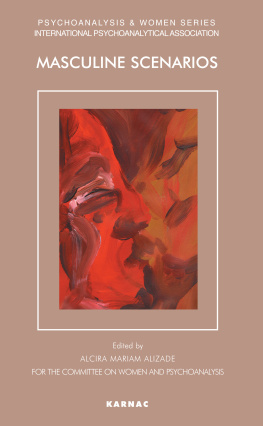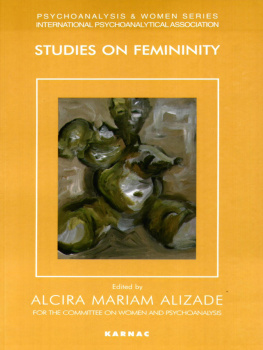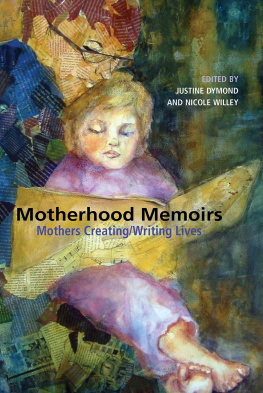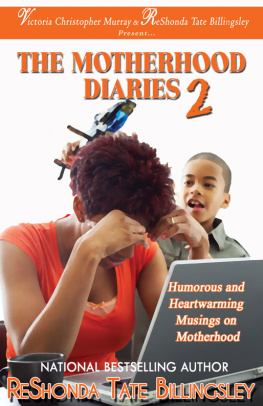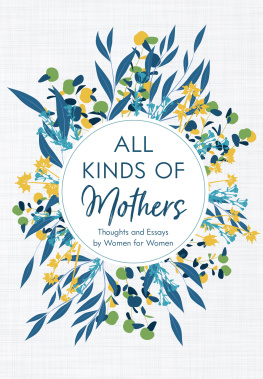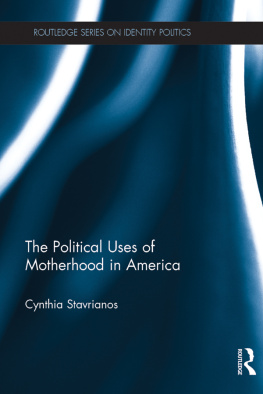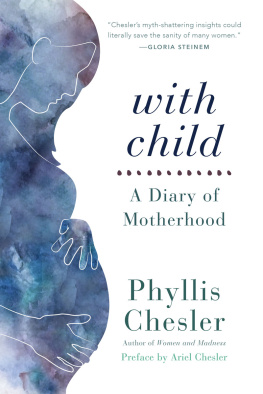H. Karnac (Books) Ltd.
Copyright 2006 The International Psychoanalytical Association Copyright 2006 Arrangement and Preface by Alcira Mariam Alizade, and individual chapters by the contributors.
The rights of the editor and contributors to be identified as the authors of this work have been asserted in accordance with 77 and 78 of the Copyright Design and Patents Act 1988.
All rights reserved. No part of this publication may be reproduced, stored in a retrieval system, or transmitted, in any form or by any means, electronic, mechanical, photocopying, recording, or otherwise, without the prior written permission of the publisher.
A CI.P. for this book is available from the British Library
FOREWORD
In the twenty-first century, with its frenzy and heterogeneity where the mixture of modernity and postmodernity is not without danger, motherhood cannot escape the impact of social and cultural transformations.
This book takes a fresh look at women in their maternal role in the fullest sense of the term, from gestation to bringing up childrenin order to highlight the hitherto unknown aspects to which social and cultural change have given rise. Not all twenty-first century mothers treat motherhood in accordance with the established model. Psycho-history the accumulation and variety of psychoanalytic theories of femininity and motherhood, the contribution of gender studies, cross-disciplinary research, and listening to what our patients have to sayall this has yielded, in the past few decades, much controversial data that challenges orthodox classical thinking with respect to the role and function of women as mothers.
In its praise of motherhood, psychoanalysis has on occasion gone too far: even in the earliest texts on the subject, mothers have taken centre stage with regard to the mental life of human beings, and their accomplishments or shortcomings have been considered decisive for subsequent mental health or illnessnot only for the child but also in adolescence or adulthood. Excessive idealization the fantasy of the phallic motheror accusationthe kind of mothering that leads to mental disorderare typical of the two opposite poles.
The absolute and unmitigated demand that mothers be perfect and know no flawsan impossible requirementignores the fact that the capacities of all women are finite; embodied in the maternal figure, she can never be (to paraphrase Winnicott) quite-good-enough as a motherand perhaps may even turn out to be decidedly pathogenic or sadistic.
Mothers in the twenty-first century confront us, both in clinical practice and in theory, with fascinating challenges that to some extent subvert the traditional maternal ideal: the motherhood of single women, motherhood in which the mother-child relationship seems minimal (in the case of very busy working mothers), teenage motherhood, in which there is no true awareness of the maternal function, motherhood in couples of homosexual women, men who take upon themselves the maternal function (men-mothers), complex motherhood by virtue of the multiple variants that have nowadays become possible thanks to new reproductive techniques, shared motherhood, surrogate motherhood, sublimated motherhood, perverse motherhood
The different psycho-social and situational contexts in which a woman has or does not have a child, wants or does not want to have a childconsciously or unconsciouslynot only create a hiatus between reproduction and sexuality, but also stand as a source of new fantasy and symbolic scenarios, which take the psychoanalyst in his or her daily clinical practice by surprise.
Many theoretical structures call for re-thinking and even questioning, given the framework of freedom of thought typical of the quasi-revolution of recent times in the habits and customs of contemporary society. The solidly-based idea of a primary maternal stage, thought to lie at the very heart of every female human being, is countered by fresh hypotheses that highlight the frequent pathology inherent in the wish for a child and emphasize the importance of considering women as having a psychic organization independent of the maternal function. This latter proposition dissociates femininity from motherhood; women take their rightful place in the arena of life that concerns wishes and desires, without having to put their capacity for procreation into action.
The innovative work in this book concerning reproduction technology and its psychic consequences is a confirmation of the plurality of voices that henceforth express the phenomenon of motherhood.
This book, above all, opens on to fresh perspectives; it will be a thought-provoking instrument for all psychoanalysts who are eager to explore a territory of the mind that invites us to constant reflection.
Alcira Mariam Alizade
COWAP chairperson (2001-2005)
CONTRIBUTORS
Alcira Mariam Alizade, MD, is a psychiatrist and training analyst of the Argentine Psychoanalytic Association. She is the current overall chair of the IPA Committe on Women and Psychoanalysis (2001-2005), and former COWAP Latin-American co-chair (1998-2001). She is the author of: Feminine Sensuality (Karnac, 1992); Near Death: Clinical Psychoanalytical Studies (Amorrortu, 1995); Time for Women (Letra Viva, 1996); The Lone Woman (Lumen, 1999); Positivity in Psychoanalysis (Lumen, 2002), and Editor of IPA-COWAP Karnac Series (The Embodied Female; Studies on Femininity; Masculine Scenarios) and of the collected papers of COWAP Latin-American Inter-generational Dialogues (Lumen).
Giovanna Ambrosio is a full member of the Italian Psychoanalytical Association (AIPsi) and the International Psychoanalytical Association. She is Secretary of AIPsi, Chief Editor of the journal Psicoanalisi, and European co-chair of the Committee on Women and Psychoanalysis. Her main scientific interests include the field of the intrapsychic interaction relationship between truth and the false, the meanings of lies and issues related to the well known problem of theconfusion of tongues.
Fanny Blanck-Cereijido, MD, is a Member of the Mexican and Buenos Aires Psychoanalytic Association, and Training Analyst of the Mexican Psychoanalytic Association. Among other books and articles, she has published A study on feminine sexuality (International Journal of Psychoanalysis, 64: 93-104, 1983); Panel report: infertility, surrogacy and the new reproductive technique (International Journal of Psychoanalysis, 77: 129-133, 1997); Psicoanlisis y nuevas tcnicas reproductivas in: El laberinto de las estructuras (Siglo XXI, 1998).
Emilce Dio Bleichmar, MD, is a Member of the Argentinian Psychoanalytical Association and of Regiomontana Psychoanalytical Association. Mexico, Head and Professor of Graduate Studies in Psychotherapy and Psychoanalytical Clinical Practice of Child and Family at the Universidad Pontificia Comillas, Madrid, and Head of the Womens Studies Department at ELIPSIS. She is the author of the following books: La Sexualidad Femenina. De la nia a la mujer (Paids, 1998); Gnero, Psicoanlisis, Subjetividad (compiler with M. Burin) (Paids, 1996); La Depresin en la Mujer (Temas de Hoy, 1991); El Feminismo Espontneo de la Histeria. Trastornos narcis-istas de la feminidad. (Siglo XXI, 1991); Temores y Fobias. Condiciones de Gnesis en la Infancia (Gedisa, 1981). Emilce Dio Bleichmar is also the author of articles in collective and specialized works, mostly on the subjects of femininity, female sexuality, and motherhood.

